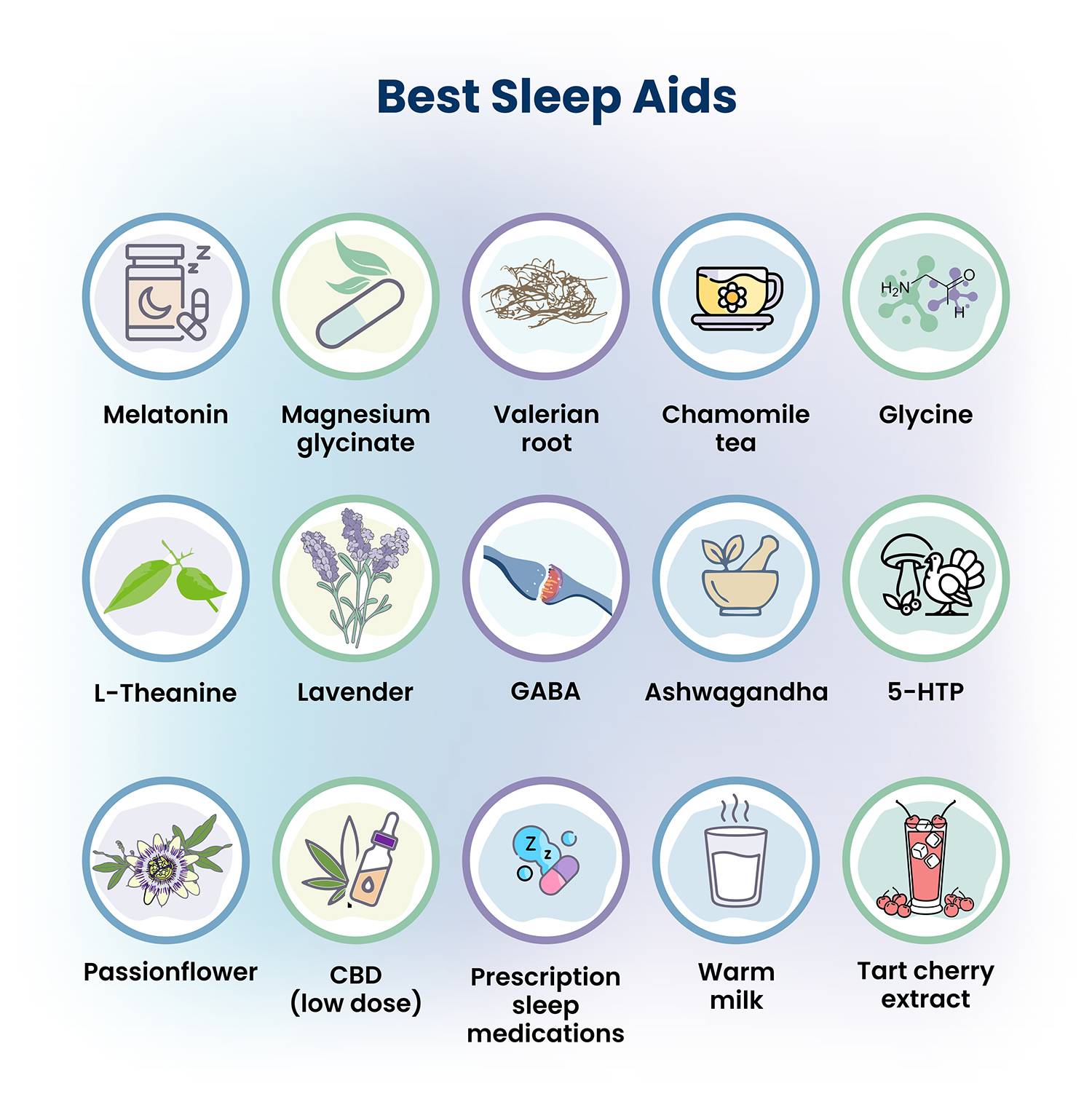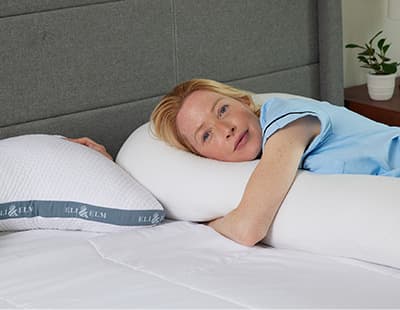Around the world, improving the quality of sleep is increasingly difficult. The CDC reports that 1 in 3 adults experiences sleep problems. Even more, around 30% of adults indicate short sleep duration (under 7 hours), which is associated with more difficulty focusing, metabolism slowing down, and more stress hormones being produced.
For this reason, there is growing interest in non-prescription natural ways to help people sleep better. The global natural sleep remedies market is growing at a fast rate as well — the market for herbal supplements marketed to improve sleep is expected to reach over $12 billion by 2030 as more people choose more plant-forward or cleaner options.
This blog will examine the best natural practices people use to achieve better sleep and deeper sleep cycles — without immediately having to resort to heavy medications.
What is a Sleep Aid?
A sleep aid refers to anything that helps an individual to drift off to sleep faster, stay asleep longer, or have improved quality of sleep. Sleep aids can come in many forms, such as natural herbs, some vitamins and minerals, supplements, calming teas, routines, or even non-medication approaches like breath work or light exposure management.
In some aspects, sleep aids can also be prescription or over-the-counter medication; however, the term today can be applied to natural, non-drug, herbal options as well.
The primary purposes of sleep aids are to:
- help the brain to wind down
- reduce mental stimulation
- relax the nervous system
- get into a healthier sleep cycle
A sleep aid should not be seen as a substitute for healthy sleep habits, such as a regular bedtime, limiting blue light exposure, and a good sleep environment, but it can reinforce those habits and make them more effective.
People use sleep aids when they have a hard time:
- falling asleep
- staying asleep
- getting back to sleep after waking up
- getting deep, restorative sleep
Sleep aids are chosen based on preference, tolerance, lifestyle, and how someone responds to ingredients or a method. Some prefer herbal ingredients such as chamomile or valerian. Others prefer supplements, such as magnesium. Some people use non-ingestible techniques such as white noise, meditation, or a warm bath.
Why Do You Need Sleep Aids?
Sleep aids serve a great purpose when sleep does not occur naturally or on time. Modern society is one of the biggest culprits of sleep disruption. Constant screens, late-night work, stress, caffeine intake, and irregular patterns all disrupt the brain's ability to shut down naturally.
People most often start to think about sleep aids when:
- have difficulty going to sleep at night
- wake up multiple times in the night
- wake up early in the morning, and cannot go back to sleep
- feel low energy in the morning, the following day, even after 7–8 hours
- cannot stop busy or racing thoughts at night
- find their sleep consistently disrupted while traveling or due to irregular work or sleep schedules
The American Sleep Association states that between 50 and 70 million adults in the U.S. have some sort of sleep disorder, a lot of which are a result of lifestyle or nervous system imbalance, not necessarily medical conditions.
The following is a list of ways natural sleep aids can:
- encourage relaxation
- ease the mind more quickly
- make it easier to maintain a healthy sleep-wake rhythm
- eliminate feelings of “wired but tired” at night
Sometimes, people need additional support, even when their sleep hygiene is good. Sleep aids only give your body the extra support of getting into a state where you can fall asleep more easily, more deeply, and longer.
8 Best Sleep Aids
Here are different types of the best sleep aids:
1. Magnesium
Magnesium serves an important function in settling the nervous system. Many people are low in magnesium as they eat processed foods and experience stress. Supplementing it (especially forms such as magnesium glycinate) may help muscles relax, decrease mental tension to decrease, and help you experience deeper, more restorative sleep.
2. Melatonin
Melatonin is a natural hormone released by the brain when it is dark. Supplementing small doses may benefit individuals who have trouble sleeping at an appropriate time, especially with time zones, working night shifts, or late-night screen exposure that interferes with natural melatonin production.
3. Ashwagandha
Ashwagandha is a traditional adaptogen herb that lowers cortisol (stress hormone). When stress and anxiety are lower, the body can more easily fall asleep naturally. Some studies show that regular sustained use helps to increase total sleep time and decrease how often you wake up at night.
4. Valerian Root
Valerian root is commonly used for its mild sedative effect. It affects GABA, a calming neurotransmitter in the brain. Results may vary, but some people report going to sleep faster and waking up less often. Valerian root is typically taken before bed in capsule or extract form.

5. Tart Cherry Juice
Tart cherries are among the few natural food sources of melatonin. Consuming tart cherry juice in the evening may help improve sleep duration and sleep efficiency to a small extent. It is not a “strong” sleep support, but it may aid in getting better sleep if consumed consistently.
6. Chamomile
Chamomile is recognized for its calming effects. It's gentle, mild, and one of the most popular evening teacup routines. It calms the thoughts, reduces irritability, and prepares the body for a more seamless transition to sleep — particularly during stressful or very active days.
7. Lavender
Lavender is frequently used in aromatherapy. Its scent communicates to the brain to relax. Placing lavender oil on pillows or diffusing it, or adding lavender oil to warm baths before bedtime, can assist the nervous system, which can, ultimately, provide more timely and restful sleep.
8. Glycine
Glycine is an amino acid that can lower core body temperature slightly, which is an important component necessary for sleep onset. Data support deeper sleep stages with glycine, and some research also suggests greater alertness the following day. Many people take glycine powder mixed in water before bedtime.
Are Natural Sleep Aids The Ultimate Cure?
No, natural sleep aids are not a final cure; they are a support tool.
While natural sleep aid supplements can certainly help countless people sleep better, the symptom of sleep deprivation does not fix the underlying reason for the sleep issue.
If the real reason for poor sleep is stress, sleep, light exposure, inconsistent bedtime, or timing of caffeine, hormone imbalance, anxiety, and so on, supplements will not fix the cause of the problem.
Natural sleep solutions work best in conjunction with:
- a regular sleep schedule
- limited screen time in the evening
- a cool and dark sleeping space
- limiting caffeine consumption later in the day
- managing stress.
Natural sleep aids help with a smoother transition to sleep, but the long-term impact occurs through improving the lifestyle and environment that contribute to sleep. They aid in improving sleep, but are a supplement — not a solution — and long-term sleep improvement stems from modifying habits to address issues impacting and interrupting sleep.
Final Thoughts
Natural sleep supplements can undoubtedly help facilitate better sleep, but are best applied in conjunction with any necessary lifestyle changes. Regular routines, reduced evening screen exposure, stress reduction, and a sleep-promoting environment will still yield the greatest long-term impact.
Natural aids merely make it easier for the body to transition into deeper sleep — but the life habits you establish each day are what keep you there.






















